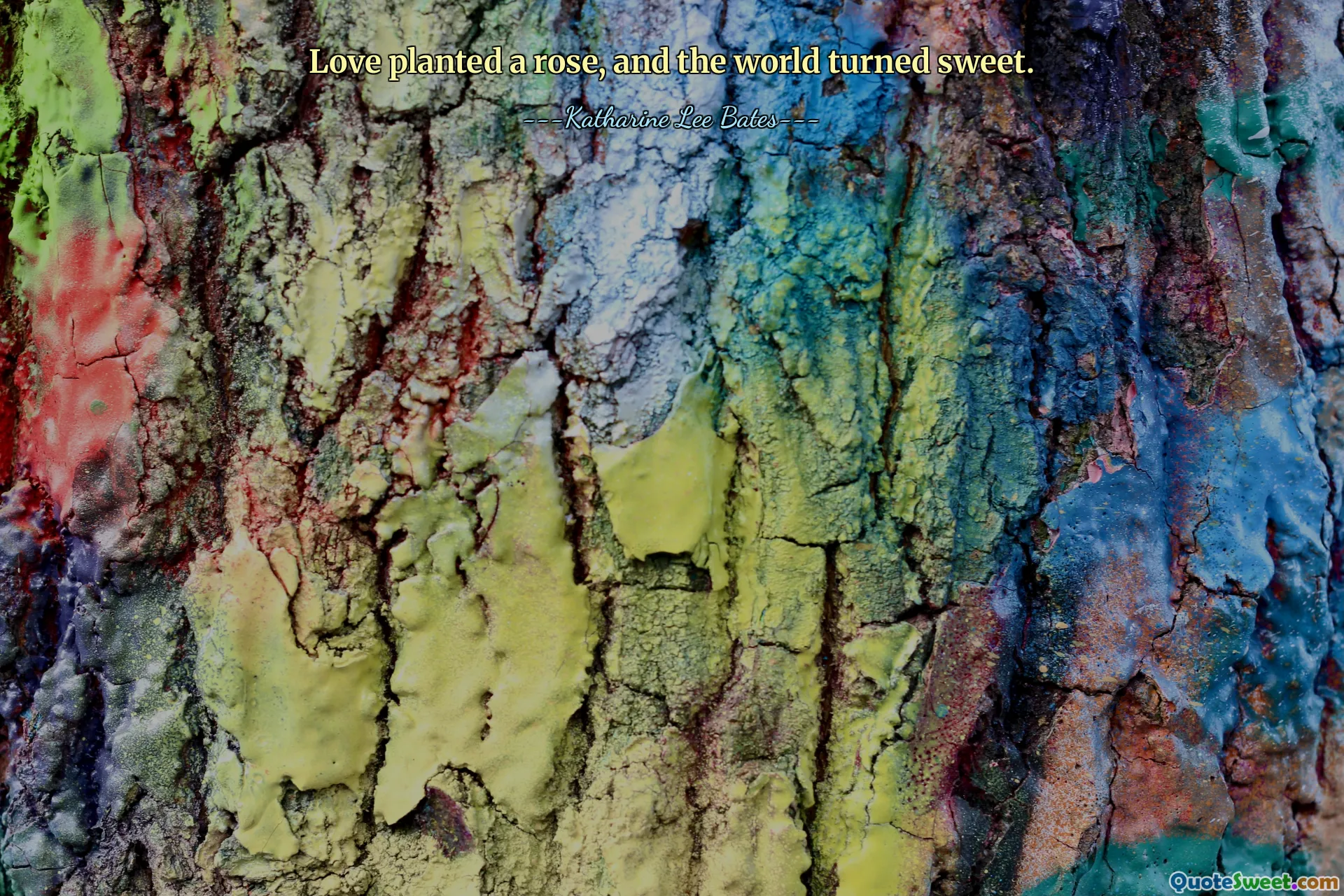
Love planted a rose, and the world turned sweet.
This beautifully simple yet profound quote encapsulates the transformative power of love. The metaphor of planting a rose is particularly evocative, symbolizing the act of nurturing something delicate and beautiful. Love, in this sense, acts as a catalyst that initiates growth and beauty in the world. Roses often represent beauty, passion, and fragrance — all of which have connotations of positive experiences and emotions. When love "plants" a rose, it suggests an intentional act of care and cultivation that not only benefits the object of love but also radiates outward, changing the environment itself.
The phrase "the world turned sweet" conveys that the influence of love extends beyond an individual level, affecting the broader world. Sweetness here implies more than just pleasantness; it implies a change in the atmosphere and spirit of life surrounding us. It’s a reminder that love, in its purest form, has the potential to bring harmony, kindness, and joy which softens the harsher edges of reality.
In a broader philosophical context, the quote highlights love as a fundamental force that drives positive change. It encourages one to consider how acts of love and compassion have ripple effects, making life more beautiful and meaningful. In times where negativity and division often dominate public discourse, this quote serves as a hopeful reminder that love is a seed worth planting continuously.
Ultimately, Katharine Lee Bates’s quote is a call to lovingly cultivate the world around us, emphasizing that even small acts of love can contribute to a sweeter, more harmonious existence. It inspires us to recognize and foster love’s potential to transform not only our own lives but the lives of others and the greater environment.











